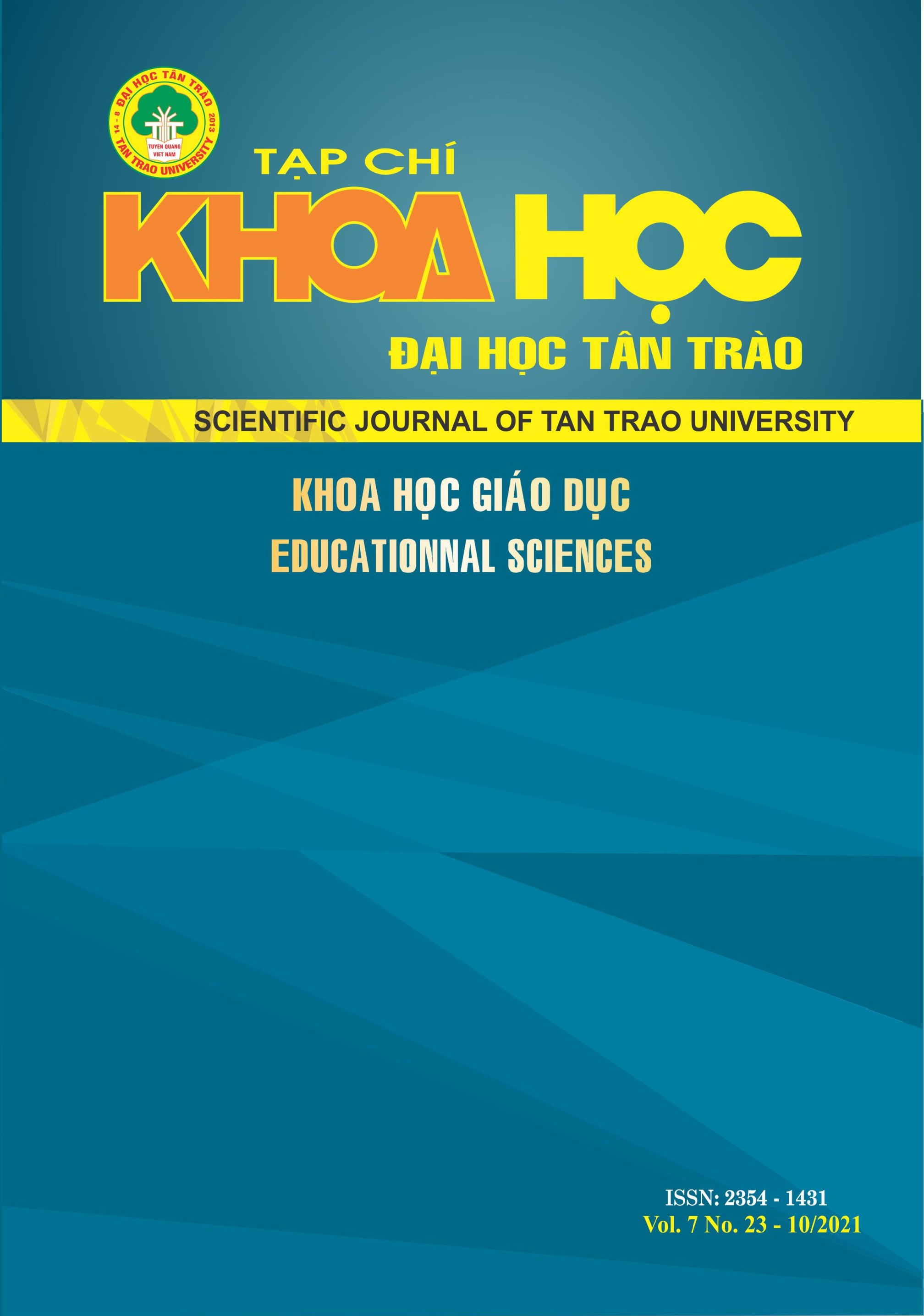THE EFFECTIVENESS OF BLENDED LEARNING ACTIVITIES AT HIGHER EDUCATION: EXPERIENCES FROM VNU – UNIVERSITY OF EDUCATION
DOI:
https://doi.org/10.51453/2354-1431/2021/558Keywords:
blended learning, higher education, learning outcomeAbstract
In the technological era, blended learning is becoming an expected trend, especially in higher education. This research used survey and experimental research. The samples are students at VNU – university: 02 classes applied blended learning with 77 students and 01 traditional class with 33 students. The paper focuses on blended learning characteristics and assesses this activity's effectiveness in terms of students' engagement, goal completion rate, self-regulated learning skills, and achievement. The results point out the significant differences in students' engagement, achievement between students participating in traditional and blended classes
Downloads
References
[1] Bleed, R. (2001). A hybrid campus for a new millennium. Educause Review, 36(1): 16–24.
[2] Boud, D., Symes, C. (2000). Learning for real: work-based education in universities. Working knowledge: The new vocationalism and higher education, 14-29.
[3] Quang, B. N. (2013). Impact of consciousness, attitudes, and self-study methods on student academic performance (Case Study of Students in Bilingual Russian-English, University of Social Sciences and Humanities, Vietnam National University, Ho Chi Minh City). Master's Thesis on Measurement and Evaluation in Education. Institute for Education Quality Assurance, Vietnam National University, Hanoi.
[4] Garnham, C., Kaleta, R. (2002). Introduction to hybrid courses. Teaching with technology today, 8(6): 5.
[5] Jessica Bowyer. (2016). Evaluating blended learning: Bringing the elements together.
[6] John Bailey, S. E., Carri Schneider, Tom Vander Ark. (2013). Blended Learning Implementation Guide.
[7] Knight, P., Yorke, M. (2003). Assessment, learning and employability. McGraw-Hill Education (UK).
[8] Khaddage, F., Knezek, G., Rosen, D. (2013). The teacher education evolution: the shift from online to mobile learning in curriculum, assessment and delivery. Society for Information Technology & Teacher Education International Conference.
[9] M. Carman, J. (2005). Blended learning design: Five key ingredients.
[10] McGee, P., Reis, A. (2012). Blended Course Design: A Synthesis of Best Practices (Vol. 16).
[11] Michael B. Horn, Heather Staker. (2014). Blended: Using Disruptive Innovation to Improve Schools (San Francisco: Jossey-Bass).
[12] Norberg, A., Dziuban, C. D., Moskal, P. D. (2011). A time‐based blended learning model. On the Horizon.
[13] Norman Vaughan. (2015). Student assessment in a blended learning environment , INFORMATION AGE PUBLISHING, INC
[14] Pombo, L., Loureiro, M. J., Balula, A., Moreira, A. (2013). Diversity of strategies to promote effective b‐learning: A case study in higher education. Distance and E‐Learning in Transition, 627-644.
[15] Popham, W. J. (2008). Transformative assessment. ASCD
[16] Anh, T. L. (2009). Factors affecting the academic performance of college students. Master's thesis measurement and evaluation in education. The Center for Training Quality Assurance and Educational Development Research, Vietnam National University, Hanoi.
[17] Lan, V. T. N., Hoan, L. T. P. (2018). Self-study activities of first-year students in the Faculty of Electronics and Telecommunications at Saigon University. Journal of Science, 15(4):108-118.
[18] Wang, M.-j. (2010). Online collaboration and offline interaction between students using asynchronous tools in blended learning. Australasian Journal of Educational Technology, 26(6).
Downloads
Published
How to Cite
Issue
Section
License

This work is licensed under a Creative Commons Attribution-ShareAlike 4.0 International License.
All articles published in SJTTU are licensed under a Creative Commons Attribution-ShareAlike 4.0 International (CC BY-SA) license. This means anyone is free to copy, transform, or redistribute articles for any lawful purpose in any medium, provided they give appropriate attribution to the original author(s) and SJTTU, link to the license, indicate if changes were made, and redistribute any derivative work under the same license.
Copyright on articles is retained by the respective author(s), without restrictions. A non-exclusive license is granted to SJTTU to publish the article and identify itself as its original publisher, along with the commercial right to include the article in a hardcopy issue for sale to libraries and individuals.
Although the conditions of the CC BY-SA license don't apply to authors (as the copyright holder of your article, you have no restrictions on your rights), by submitting to SJTTU, authors recognize the rights of readers, and must grant any third party the right to use their article to the extent provided by the license.


